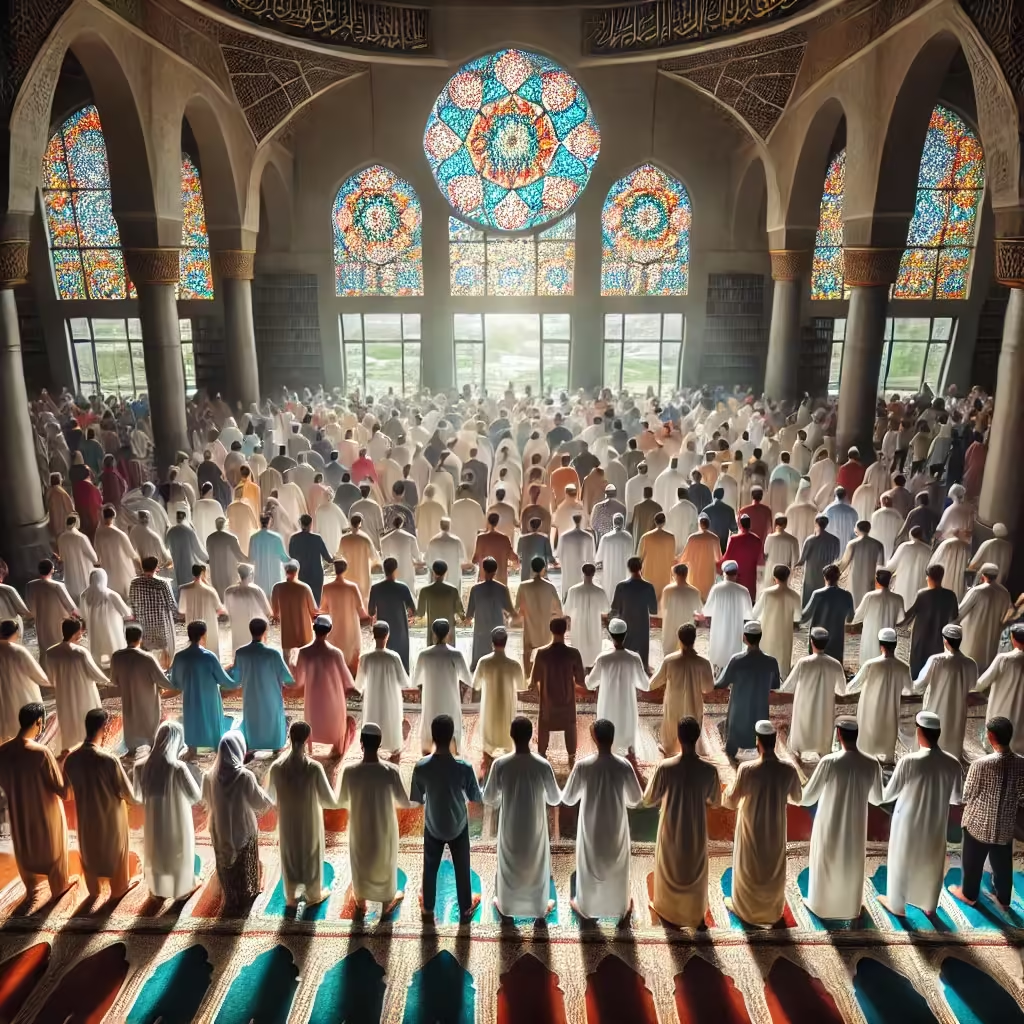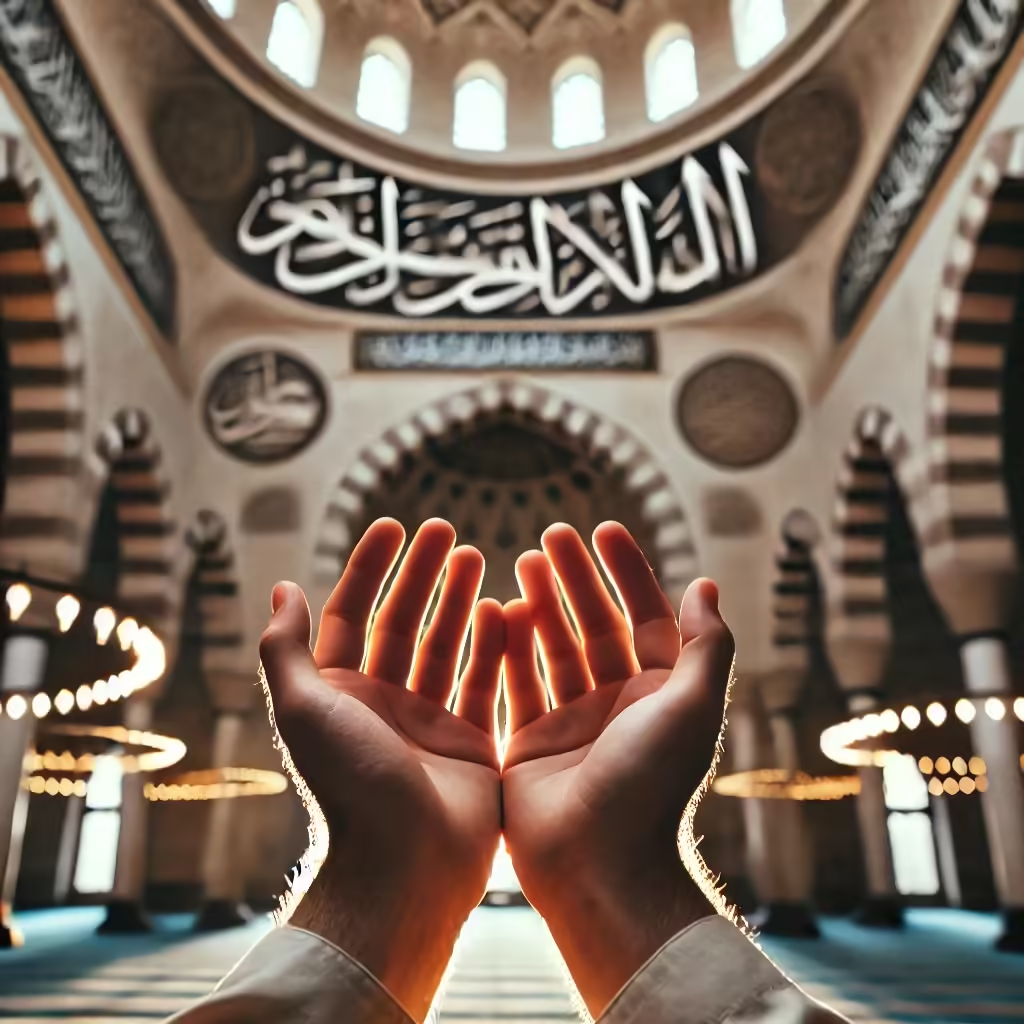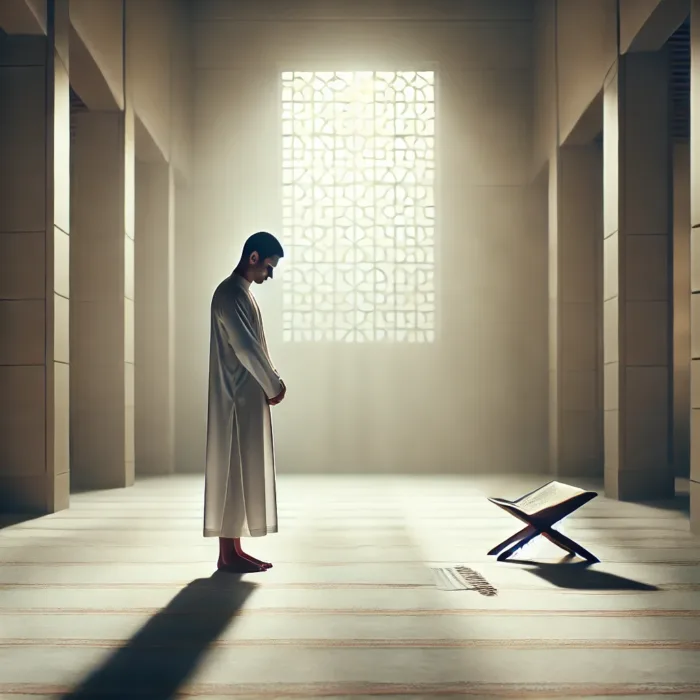Table of Contents
Introduction
This article is the twentieth in a series dedicated to exploring prayer in Islam, focusing on how it should be performed correctly, how the righteous predecessors prayed, what to say after rising from Rukoo‘ (the bowing position), and how these words should be recited. Click here to read the entire series, ALLAH willing.
The Significance of After Rukoo’ in Prayer
After rising from Rukoo’, it is as if you are preparing for something truly meaningful. In this moment, you offer praise to ALLAH, the Almighty, for granting you the ability to bow in worship. Many people do not lower their heads before ALLAH but instead bow before others. Their backs bend not for ALLAH but for worldly things.
“They fled from the slavery they were created for
and instead turned to the deceptive power of disbelief and Satan”
Those who do not bow to ALLAH will inevitably bow to Satan, to their desires, and to anything other than ALLAH, the Most High.
Praising ALLAH After Rukoo’
When you rise from Rukoo’, you praise ALLAH, recognizing it as a true blessing. If the depth of this blessing were fully understood and appreciated, you might feel compelled to spend a lifetime in prostration, offering gratitude.
In this moment, you thank ALLAH for granting you the honor of bowing and prostrating. You recite, “Sami’a ALLAHu liman hamidah“1 (“ALLAH hears those who praise HIM“) and “Rabbana wa laka al-hamd“2 (“Our LORD, and to YOU be praise“). It is encouraged to vary these phrases, sometimes saying “Rabbana lakal hamd“3, or “Rabbana wa laka al-hamd“, and occasionally adding, “ALLAHuma Rabbana wa laka al-hamd“4 (“O ALLAH, our LORD and to YOU be the praise“), expressing the reverence and devotion within your heart.

A beautiful practice after Rukoo’ is to say, “Rabbana wa laka al-hamd hamdan kathiran tayyiban mubarakaan feeh“5 (“O our LORD, and to YOU be praise, much blessed and pure praise“). When the Prophet Muhammad (Peace be upon Him) heard someone reciting this after finishing prayer with his congregation, He asked, “Who said that?” When the man identified himself, the Prophet remarked,
“‘I saw thirty-some angels rushing to see which of them would write it down first“6
This hadith highlights the immense significance and majesty of these words in offering praise to ALLAH, showing how cherished and valued such expressions are in HIS sight.
Maintaining Focus After Rukoo’
After Rukoo’, it is essential to engage in sincere praise of ALLAH. These praises are so vast that they fill the heavens, the earth, and everything in between, reaching even beyond what we know or can imagine. This suggests that all creations, known and unknown, are immersed in praise. Supplications such as,
“Our LORD, to YOU be the Praise, filling the heavens, filling the Earth, and filling whatever else YOU will, LORD of Glory and Majesty, the truest thing a slave had said, and we are all slaves to YOU. None can withhold what YOU grant, nor can the possession of an owner benefit him before YOU“
are profound supplications that humble the heart, placing the worshipper in a state of deep submission before ALLAH.
Our challenge is that we have grown used to reciting supplications without reflecting on their meanings. Sadly, repetition can lead to familiarity, turning the prayer into something that flows like a recording, beginning to end, without pause. In truth, we must slow down, focus, awaken our hearts, and truly understand each word. The more we comprehend, the deeper our humility, the more the prayer touches our hearts, and the more complete our reward becomes.
Not everyone receives the same reward for prayer. The Prophet Muhammad (Peace be upon Him) said,
“A man returns after saying his prayer while a tenth part of his prayer, or a ninth part, or an eight part, or a seventh part, or a sixth part, or a fifth part, or a third part, or half of it, is recorded for him“7
Imagine a person entering prayer, yet only a tenth of their reward is recorded because they recite without true focus.

When one speaks the words of prayer but lets the mind wander elsewhere, they miss the depth and purpose of prayer. It is vital to focus, allowing the fruit of prayer to flourish in the heart, as if nurturing a tree that bears righteous deeds, faith, humility, and submission, cultivating the true essence of a person. Let it bring change, as in the verse:
“Indeed, mankind was created anxious: When evil touches him, impatient, And when good touches him, withholding [of it], Except the observers of prayer –“8
(Suraat ‘Al-Ma’aarij, 70:19-22)
The one who prays is set apart, enrolled in what could be called the School of Prayer—a transformative journey that shapes hearts, builds unwavering faith, and forms a person who, unlike others, rises above anxiety and distress, becoming someone who finds peace and strength in prayer.
Sources:
- Dr. Ahmed ElAraby. فاهم 36 | سلسلة تذوق العبادات – (1) الصلاة | مع د. أحمد العربي. YouTube Video.

